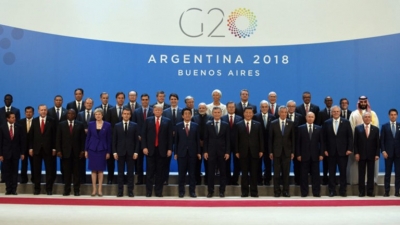
G20 was in the news recently with its two-day summit hosted by Italy in Rome on October 30 and 31.
G20 and its members
The G20 (or the Group of Twenty) is an informal group of 19 countries and the European Union, a combination of the world’s largest advanced and emerging economies. Formed in 1999, the G20 forum regularly meets to coordinate global policy on economic growth, international trade, health, climate and other issues. The G20 does not have a permanent headquarters and its presidency rotates annually.
The G20 members are Argentina. Australia, Brazil, Canada, China, France, Germany, India, Indonesia, Italy, Japan, Mexico, Russia, Saudi Arabia, South Africa, South Korea, Turkey, the U.K., the U.S., and the European Union. The G20 economies together account for nearly 80% of the world’s economic output, two-thirds of the global population, and about half of the world’s land area.
Its origin
The G20 was established in December 1999 in response to the financial crises faced by a number of countries in the 1990s with the aim of uniting the world around promoting global financial stability. There was also the need to create a more inclusive body with greater representation. What began as a regular forum for finance ministers and central bank governors turned into a key summit in 2008 when the heads of State and government came together for the first time in Washington to discuss global economy as well as other challenges facing the world. Ever since, the leaders have been meeting annually. A series of G20 ministerial events takes place during a year.
Its objectives
The G20 summit is focussed on several key issues such as achieving global economic stability, sustainable growth prevention of future financial crises, putting in place regulatory mechanisms, and action against climate change. The two-day summit concludes with a joint statement issued by the members committing themselves to action. It is significant to note that the resolutions of the G20 are not legally binding, but they do influence the policies of the member countries.
Climate change, boosting the global economy, fighting the pandemic, improving the health infrastructure, and distribution of COVID vaccines were discussed by world leaders at the Rome meet. After the talks, the leaders issued a pledge to fight global warming, to reach net zero carbon emissions by or around mid-century, to end international funding for new coal projects by the end of 2021, and to pursue efforts to limit the average global temperature rise to 1.5 degrees Celsius above pre-industrial levels by the end of this century.
Picture Credit : Google




